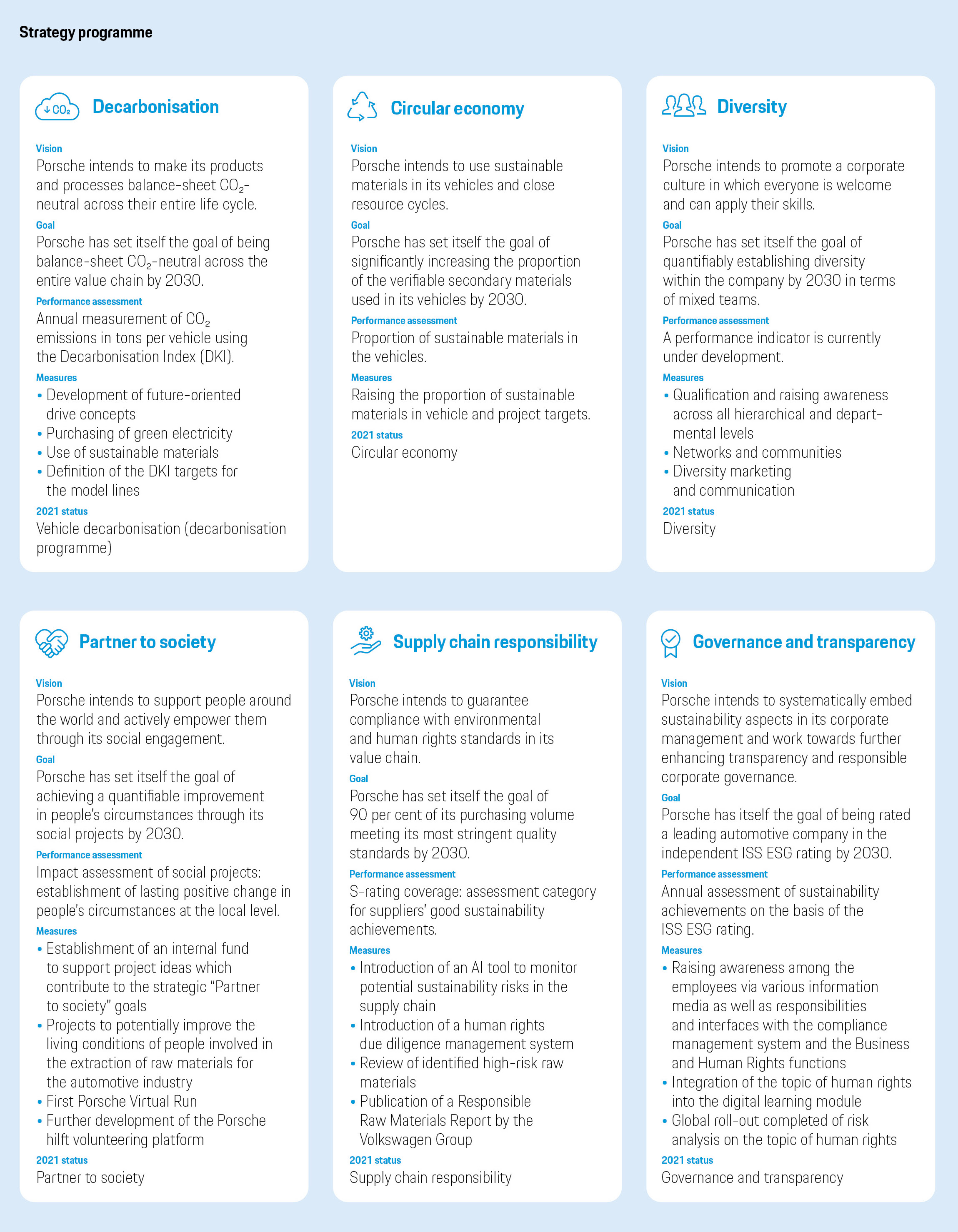In its Sustainability Strategy 2030, Porsche has grouped the company’s key challenges under six strategic areas of action. The company systematically aligns its engagement with these areas of action. With its strategy, Porsche is assuming social responsibility, bolstering sustainable and value-creating growth and further reducing its environmental footprint.
Porsche further developed its activities in the area of sustainability in the year under review. These activities are based on the company’s Strategy 2030. Social and environmental changes at the global level are prompting the company to examine the entire value chain with the aim of continuously improving sustainability in all areas of its business activities.
Sustainability Strategy 2030
Companies are key players in society in many ways. Their actions have far-reaching economic, environmental and social effects. More resources are consumed around the world annually than can be naturally reproduced. The planet’s population will likely grow to over eight billion people by 2030. The responsible use of natural resources is therefore becoming more and more relevant. At the same time, global competition is becoming more intense. And new challenges are arising all the time, such as climate change, political upheaval and the global consequences of the coronavirus pandemic. The consumers are generating momentum too with demand which is changing more and more quickly. There are also increasing expectations on the part of various interest groups of an economy which is oriented towards sustainability. A key role in how these changes are responded to is played by the automotive industry – and therefore also by Porsche.
In its Sustainability Strategy 2030, Porsche has grouped the company’s key challenges under six strategic areas of action. These are:
- Decarbonisation
- Circular economy
- Diversity
- Partner to society
- Supply chain responsibility
- Governance and transparency
The company systematically aligns its engage-ment with these areas of action. With its Sustainability Strategy 2030, Porsche is therefore assuming social responsibility, bolstering sustainable and value-creating growth and further reducing its environmental footprint. At all times, the focus is on the impacts of its business activities and the stakeholders’ expectations. With its chosen strategy fields, Porsche is taking global changes into account. Together with its suppliers, employees and customers, the company is promoting new shaping and innovation opportunities – throughout the company’s value chain.
The sports car manufacturer continuously evaluates the progress it is making in all six areas of action in its Sustainability Strategy 2030. The strategy pursued is then continuously adapted. Porsche regularly engages in active dialogue with its internal and external stakeholders and with recognised experts.
Porsche also ties the six strategy fields and its corresponding activities in with the Sustainable Development Goals (SDGs). The United Nations’ SDGs offer companies guidance in bringing their targets and activities into line with sustainable development. There are 17 global goals at the heart of the 2030 Agenda. Their aim is to reconcile economic progress with social justice and environmental compatibility around the world. The SDGs apply to this report too and are tied in with Porsche’s strategic focuses.
With ambitious targets, Porsche’s sustainability strategy benchmarks itself against scientific findings and external expectations. These provide the framework for effective action. The company also draws on its inherent values and the brand’s aspiration to be a bold and visionary pioneer of sustainable mobility.




